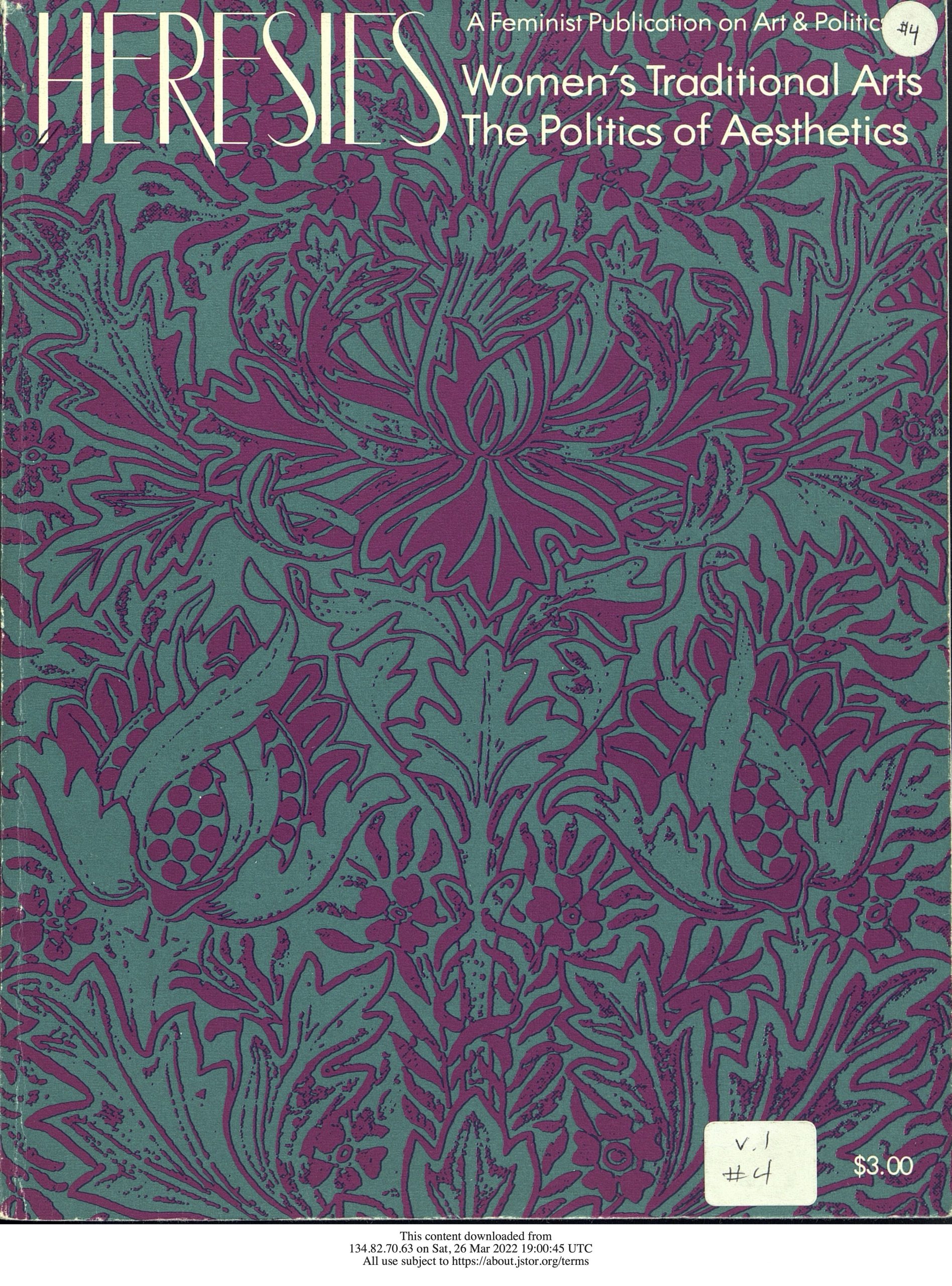
Heresies Issue 4
The fourth issue of Heresies, "Women's Traditional Arts: The Politics of Aesthetics" (1978) represents the challenges that the Collective was beginning to face - that producing a journal wasn't always aligned with their principles, and the recognition that there are tensions between collaboration and publication: "How could we collectively make a magazine that represented us all? How comfortable were we with each other's voices, with each other's images, with each other's ideas?" (From the Editorial Group)
The process of editing the issue, as described by the Group, aligns with the process of considering how the Bucknell Heresies Project should undertake the digitization and presentation of the materials within the issue. We struggled with how to annotate the texts deeply, revealing the women who not only produced the issue but those who were invoked in those pages. But at the same time, we have tried to find ways to manage the multimodality of the original pieces in ways that showed respect for the original editorial decisions that were made with regard to the interleaving and interpolation of text and image, and how we could reintroduce this in hypermedial ways that continue to elude us.
The textual components are currently viewable in collection that comprises the print-forward essays like Silvia Bovenshen's "Is There a Feminine Aesthetic?" and Joanna Russ's "Women Talking, Women Thinking", to more ethnographic interviews and discussions, such as the collected "Conversations & Reminiscences", to biographical sketches of artists and movements, like Josephine Gear's "Trapped Women: Two Sister Designers Margaret and Frances MacDonald" and Martha Kelle's "Women of the Bauhaus".
This featured collection is very much a work in progress: we have begun by capturing all named people and organizations within the texts and preparing them for publication as linked data to connect the Bucknell Heresies Project with other digital humanities research that centers intersectional feminism. We are currently undertaking annotation and glossing to offer our own research context for the issue. As elements come online we will present them as new experiments, all the while refining and respecting our source texts.
